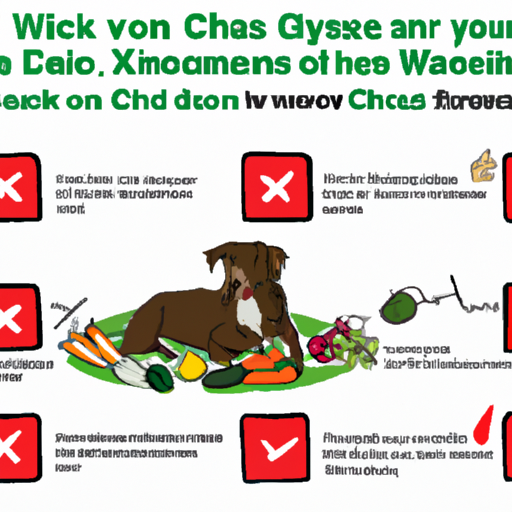As a caregiver, your role is of paramount importance. You are the guardian of your dog’s health, and it’s your responsibility to ensure they get the right nutrition. That’s why it’s critical to know what’s safe for them to eat and what’s not.
What Can Dogs Eat?
Your dog’s diet should be balanced and nutritious. But that doesn’t mean you can’t share some of your favorite foods with your furry friend. Here are some human foods that are safe for dogs:
- Carrots: These are low in calories and high in fiber and vitamins.
- Apples: They are a good source of vitamins A and C, and fiber. Remember to remove the seeds and core.
- White Rice: It’s easy on a dog’s digestive system, especially when they’re feeling under the weather.
- Fish: Salmon and tuna are packed with healthy fats and proteins.
Please remember that even safe foods should be given in moderation.
Foods Dogs Should Avoid
Contrarily, there are foods that can be harmful to dogs. Here are some of the most common:
- Chocolate: It contains theobromine, which is toxic to dogs.
- Grapes and Raisins: These can cause kidney failure in dogs.
- Onions and Garlic: They can destroy a dog’s red blood cells, leading to anemia.
How to Introduce New Foods
When introducing a new food into your dog’s diet, you should do it gradually. Here’s a simple guide:
- Start by adding a small amount of the new food to their usual diet.
- Gradually increase the amount of new food over a week.
- Monitor your dog for any adverse reactions.
A Helpful Table For Quick Reference
| Safe Foods | Not Safe Foods |
|---|---|
| Carrots | Chocolate |
| Apples | Grapes |
| White Rice | Onions |
| Fish | Garlic |
Common Questions About Dogs’ Diet
Q: Can dogs eat cheese?
A: In small quantities, cheese can be a great treat for dogs, as long as your dog isn’t lactose intolerant.
Q: Is peanut butter safe for dogs?
A: Yes, but make sure it doesn’t contain xylitol, a sugar substitute that’s toxic to dogs.
Q: Can dogs eat bananas?
A: Yes, bananas are safe for dogs to eat in moderation and can be a healthy treat.
Remember, when in doubt, it’s always best to consult with your vet before introducing new foods into your dog’s diet. You’re their first line of defense against dietary mishaps, so stay informed and vigilant. Your furry friend is counting on you!



